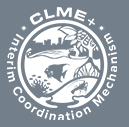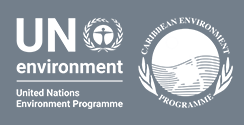|
Insular Caribbean
|
Central & North America |
South America |
Insular Caribbean |
Central & North America |
South America |
Displaying 91-100 of 98 results
 indicates that the Project Profile has been verified and it’s being managed by the project’s profile manager.
indicates that the Project Profile has been verified and it’s being managed by the project’s profile manager. -
MPA Governance Adaptive capacity for MPA governance in the eastern Caribbean
Brief Description:The objective of this project was to strengthen adaptive capacity building for the governance of MPAs in the eastern Caribbean based on resilience thinking in: 1) Develop the adaptive capacity of key stakeholders in Grenada for MPA governance mainly through four linked training workshops with follow-up practical learning by doing; 2) Extend the above capacity development to Saint Lucia and St. Vincent and the Grenadines for a limited comparison of MPA sites so as to inform potential replication, and 3) Document and foster learning from the outcomes of objectives 1 and 2 regionally and internationally through use of multiple media for communication with MPA interests.Lead Organization: CERMESDonor: NOAA Coral Reef Conservation ProgramProject ID:Geographic Scope: Multicountry (regional)Project Status: CompletedLast Update:
Start Date: 2011-10-01
End Date: 2012-09-01
Official Project Document: CERMES-MPA_governance_flyer.pdfProject Profile Manager: Patrick McConney
Contact Email: patrick.mcconney@gmail.com
Contact Phone: (246) 4174726Partners:Grant (USD): $115,000.00Total co-financing (USD): $115,000.00(Co) financing not originating from GEF:Participating Country(s):Grenada
Saint Lucia
Saint Vincent and the Grenadines
Contributions to the 10-year CLME+ Strategic Action Programme (2015-2025)
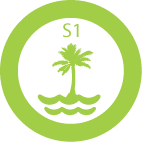
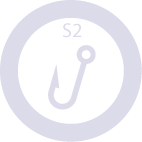

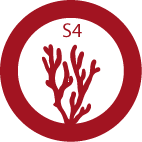
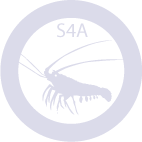

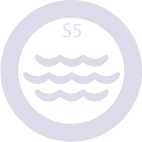
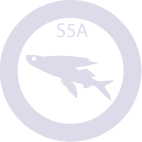
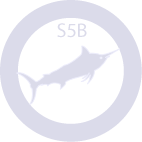
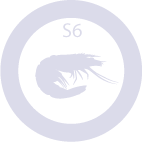 Please click on the colored SAP Strategy icon to obtain more information on the specific SAP Actions this initiative is contributing to1. Enhance the regional governance arrangements for the protection of the marine environment
Please click on the colored SAP Strategy icon to obtain more information on the specific SAP Actions this initiative is contributing to1. Enhance the regional governance arrangements for the protection of the marine environment
1.1. Establish and operationalise a formal agreement for coordinated action with Brazil2. Enhance the regional governance arrangements for sustainable fisheries
3. Establish and operationalise a regional policy coordination mechanismfor ocean governance, with initial focus on shared Living Marine Resources
4. Enhance the governance arrangements for ecosystem-based management for reefs and associated ecosystems
4.4. Coordinate and enhance (sub-)regional and national efforts for the conservation of the biodiversity of reef and associated habitats, including through the strengthening of networks of marine protected areas (MPAs), and initiatives for sustainable reef fisheries* such as programmes dealing with alien invasive species4A. Enhance the governance arrangementsfor implementing an ecosystem approach for spiny lobster fisheries
4B. Enhance the governance arrangementsfor implementing an ecosystem approach for queen conch fisheries
5. Enhance the governance arrangements for implementing an ecosystem approach for pelagic fisheries
5A. Enhance the governance arrangements for implementing the ecosystem approach for flyingfish fisheries
5B. Enhance the governance arrangementsfor implementing an ecosystem approach for large pelagics fisheries
6. Implement EBM/EAF of the Guianas-Brazil continental shelf with special reference to the shrimp and groundfish fishery
Contributions to the 2030 UN Sustainable Development Agenda (SDG’s)
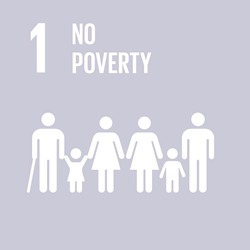
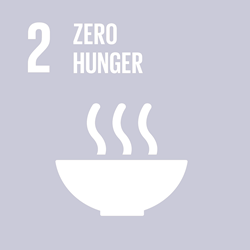
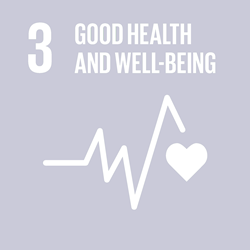
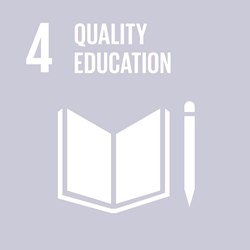
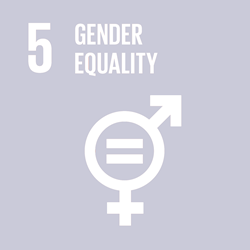
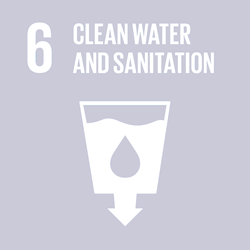
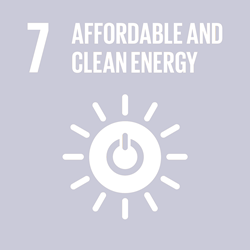
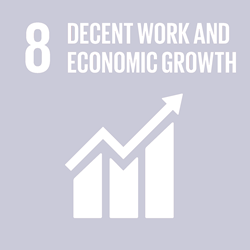
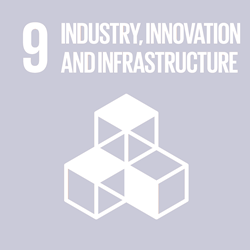
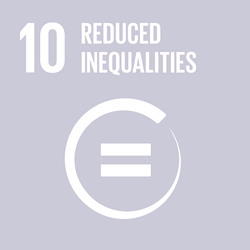
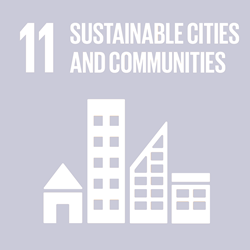
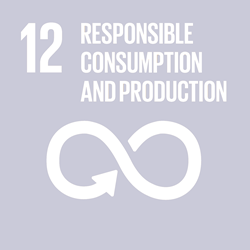
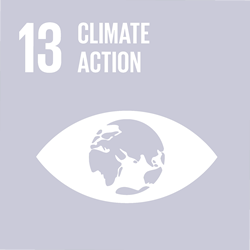
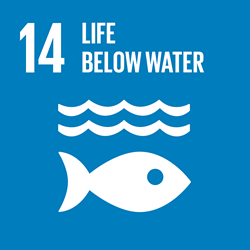
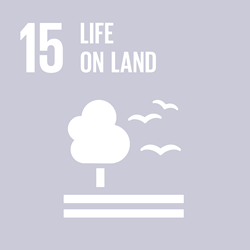
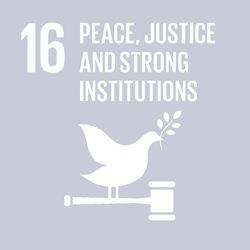
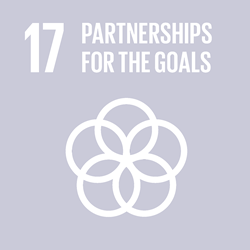
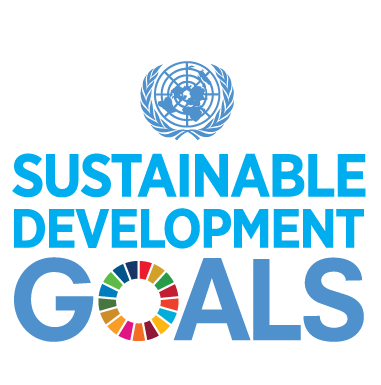 Please click on the SDG14 colored icon to see to which specific SDG14 targets this initiative is contributing.1. End poverty in all its forms everywhere
Please click on the SDG14 colored icon to see to which specific SDG14 targets this initiative is contributing.1. End poverty in all its forms everywhere
2 End hunger, achieve food security and improved nutrition and promote sustainable agriculture
3 Ensure healthy lives and promote well-being for all at all ages
4 Ensure inclusive and equitable quality education and promote lifelong learning opportunities for all
5 Achieve gender equality and empower all women and girls
6 Ensure availability and sustainable management of water and sanitation for all
7 Ensure access to affordable, reliable, sustainable and modern energy for all
8 Promote sustained, inclusive and sustainable economic growth, full and productive employment and decent work for all
9 Build resilient infrastructure, promote inclusive and sustainable industrialization and foster innovation
10 Reduce inequality within and among countries
11 Make cities and human settlements inclusive, safe, resilient and sustainable
12 Ensure sustainable consumption and production patterns
13 Take urgent action to combat climate change and its impacts
14 Conserve and sustainably use the oceans, seas and marine resources for sustainable development
14.2 By 2020, sustainably manage and protect marine and coastal ecosystems to avoid significant adverse impacts, including by strengthening their resilience, and take action for their restoration in order to achieve healthy and productive oceans15 Protect, restore and promote sustainable use of terrestrial ecosystems, sustainably manage forests, combat desertification, and halt and reverse land degradation and halt biodiversity loss
16 Promote peaceful and inclusive societies for sustainable development, provide access to justice for all and build effective, accountable and inclusive institutions at all levels
Other Regional and Global Commitments
Regional Emerging Issues
Building a Sustainable National Marine Protected Area Network
Brief Description:To expand protected area coverage of globally significant marine biodiversity and increase the management effectiveness of the national marine protected area network across the Bahamian archipelagoLead Organization: UNEP-CEPDonor: GEFProject ID: 3729Geographic Scope: NationalProject Status: CompletedLast Update:
Start Date: 11/2/2009
End Date: 2/1/2014Website:Project Profile Manager: GEF IW:LEARN
Contact Email: info@iwlearn.org
Contact Phone:Partners: BESTGrant (USD): $2,200,000.00Total co-financing (USD):(Co) financing not originating from GEF:Participating Country(s):Bahamas
Contributions to the 10-year CLME+ Strategic Action Programme (2015-2025)
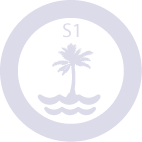


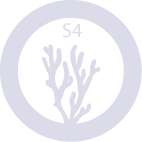





 Please click on the colored SAP Strategy icon to obtain more information on the specific SAP Actions this initiative is contributing to1. Enhance the regional governance arrangements for the protection of the marine environment
Please click on the colored SAP Strategy icon to obtain more information on the specific SAP Actions this initiative is contributing to1. Enhance the regional governance arrangements for the protection of the marine environment
2. Enhance the regional governance arrangements for sustainable fisheries
3. Establish and operationalise a regional policy coordination mechanismfor ocean governance, with initial focus on shared Living Marine Resources
4. Enhance the governance arrangements for ecosystem-based management for reefs and associated ecosystems
4A. Enhance the governance arrangementsfor implementing an ecosystem approach for spiny lobster fisheries
4B. Enhance the governance arrangementsfor implementing an ecosystem approach for queen conch fisheries
5. Enhance the governance arrangements for implementing an ecosystem approach for pelagic fisheries
5A. Enhance the governance arrangements for implementing the ecosystem approach for flyingfish fisheries
5B. Enhance the governance arrangementsfor implementing an ecosystem approach for large pelagics fisheries
6. Implement EBM/EAF of the Guianas-Brazil continental shelf with special reference to the shrimp and groundfish fishery
Contributions to the 2030 UN Sustainable Development Agenda (SDG’s)













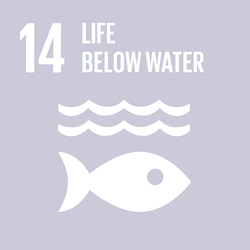



 Please click on the SDG14 colored icon to see to which specific SDG14 targets this initiative is contributing.1. End poverty in all its forms everywhere
Please click on the SDG14 colored icon to see to which specific SDG14 targets this initiative is contributing.1. End poverty in all its forms everywhere
2 End hunger, achieve food security and improved nutrition and promote sustainable agriculture
3 Ensure healthy lives and promote well-being for all at all ages
4 Ensure inclusive and equitable quality education and promote lifelong learning opportunities for all
5 Achieve gender equality and empower all women and girls
6 Ensure availability and sustainable management of water and sanitation for all
7 Ensure access to affordable, reliable, sustainable and modern energy for all
8 Promote sustained, inclusive and sustainable economic growth, full and productive employment and decent work for all
9 Build resilient infrastructure, promote inclusive and sustainable industrialization and foster innovation
10 Reduce inequality within and among countries
11 Make cities and human settlements inclusive, safe, resilient and sustainable
12 Ensure sustainable consumption and production patterns
13 Take urgent action to combat climate change and its impacts
14 Conserve and sustainably use the oceans, seas and marine resources for sustainable development
15 Protect, restore and promote sustainable use of terrestrial ecosystems, sustainably manage forests, combat desertification, and halt and reverse land degradation and halt biodiversity loss
16 Promote peaceful and inclusive societies for sustainable development, provide access to justice for all and build effective, accountable and inclusive institutions at all levels
Other Regional and Global Commitments
Regional Emerging Issues
Ecolangosta+ Enfoque Ecosistémico para la Pesca de la langosta del Caribe - CLME+ (Subproyecto del PNUD/FMAM CLME+)
 Brief Description:the Spiny Lobster Sub-Project will contribute to maximize in a sustainable way the contributions of the spiny lobster resource to human well-being and socio-economic development in the CLME+ region, while conserving the structure, diversity and functioning of the ecosystems that host this speciesLead Organization: OSPESCADonor: FMAMProject ID:Geographic Scope: Multicountry (regional)Project Status: OngoingLast Update: 17/02/2021
Brief Description:the Spiny Lobster Sub-Project will contribute to maximize in a sustainable way the contributions of the spiny lobster resource to human well-being and socio-economic development in the CLME+ region, while conserving the structure, diversity and functioning of the ecosystems that host this speciesLead Organization: OSPESCADonor: FMAMProject ID:Geographic Scope: Multicountry (regional)Project Status: OngoingLast Update: 17/02/2021
Start Date: 2017
End Date: 2019Website:http://www.sica.int/ospescaProject Profile Manager: CLME+ ICM Secretariat
Contact Email: info@clmeplus.org
Contact Phone: (503) 22488840Partners:Grant (USD): $960,000.00Total co-financing (USD): $3,100,675.00(Co) financing not originating from GEF:Participating Country(s):Belize
Colombia
Costa Rica
Guatemala
Honduras
Panama
Nicaragua
Bahamas
Jamaica
El Salvador
Contributions to the 10-year CLME+ Strategic Action Programme (2015-2025)









 Please click on the colored SAP Strategy icon to obtain more information on the specific SAP Actions this initiative is contributing to1. Enhance the regional governance arrangements for the protection of the marine environment
Please click on the colored SAP Strategy icon to obtain more information on the specific SAP Actions this initiative is contributing to1. Enhance the regional governance arrangements for the protection of the marine environment
2. Enhance the regional governance arrangements for sustainable fisheries
3. Establish and operationalise a regional policy coordination mechanismfor ocean governance, with initial focus on shared Living Marine Resources
4. Enhance the governance arrangements for ecosystem-based management for reefs and associated ecosystems
4A.2. Evaluate and expand, as applicable,the geographic scope of the governance arrangement operated by OSPESCA, taking into consideration both the perspectives of species range (ecosystem approach) and of common markets4A. Enhance the governance arrangementsfor implementing an ecosystem approach for spiny lobster fisheries
4B. Enhance the governance arrangementsfor implementing an ecosystem approach for queen conch fisheries
5. Enhance the governance arrangements for implementing an ecosystem approach for pelagic fisheries
5A. Enhance the governance arrangements for implementing the ecosystem approach for flyingfish fisheries
5B. Enhance the governance arrangementsfor implementing an ecosystem approach for large pelagics fisheries
6. Implement EBM/EAF of the Guianas-Brazil continental shelf with special reference to the shrimp and groundfish fishery
Contributions to the 2030 UN Sustainable Development Agenda (SDG’s)

















 Please click on the SDG14 colored icon to see to which specific SDG14 targets this initiative is contributing.1. End poverty in all its forms everywhere
Please click on the SDG14 colored icon to see to which specific SDG14 targets this initiative is contributing.1. End poverty in all its forms everywhere
2 End hunger, achieve food security and improved nutrition and promote sustainable agriculture
3 Ensure healthy lives and promote well-being for all at all ages
4 Ensure inclusive and equitable quality education and promote lifelong learning opportunities for all
5 Achieve gender equality and empower all women and girls
6 Ensure availability and sustainable management of water and sanitation for all
7 Ensure access to affordable, reliable, sustainable and modern energy for all
8 Promote sustained, inclusive and sustainable economic growth, full and productive employment and decent work for all
9 Build resilient infrastructure, promote inclusive and sustainable industrialization and foster innovation
10 Reduce inequality within and among countries
11 Make cities and human settlements inclusive, safe, resilient and sustainable
12 Ensure sustainable consumption and production patterns
13 Take urgent action to combat climate change and its impacts
14 Conserve and sustainably use the oceans, seas and marine resources for sustainable development
14.7 By 2030, increase the economic benefits to Small Island developing States and least developed countries from the sustainable use of marine resources, including through sustainable management of fisheries, aquaculture and tourism15 Protect, restore and promote sustainable use of terrestrial ecosystems, sustainably manage forests, combat desertification, and halt and reverse land degradation and halt biodiversity loss
16 Promote peaceful and inclusive societies for sustainable development, provide access to justice for all and build effective, accountable and inclusive institutions at all levels
Other Regional and Global Commitments
Regional Emerging Issues
FIT4CC Fisheries information technology innovations for resource management and climate change adaptation in the Caribbean
Brief Description:To increase resilience to climate change impacts in the CARIFORUM fisheries sector, trough building capacity for fisheries management information systems, sustainable management of shared fisheries resources and introduction of adaptation measures.Lead Organization: FAODonor: EU DEVCOProject ID:Geographic Scope: Multicountry (regional)Project Status: OngoingLast Update:
Start Date: 2018
End Date: 2021Website:Project Profile Manager: CLME+ ICM Secretariat
Contact Email: info@clmeplus.org
Contact Phone:Partners:Grant (USD): $11,144,500.00Total co-financing (USD):(Co) financing not originating from GEF:Participating Country(s):Contributions to the 10-year CLME+ Strategic Action Programme (2015-2025)






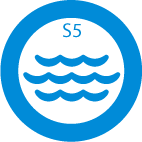


 Please click on the colored SAP Strategy icon to obtain more information on the specific SAP Actions this initiative is contributing to1. Enhance the regional governance arrangements for the protection of the marine environment
Please click on the colored SAP Strategy icon to obtain more information on the specific SAP Actions this initiative is contributing to1. Enhance the regional governance arrangements for the protection of the marine environment
2. Enhance the regional governance arrangements for sustainable fisheries
3. Establish and operationalise a regional policy coordination mechanismfor ocean governance, with initial focus on shared Living Marine Resources
4. Enhance the governance arrangements for ecosystem-based management for reefs and associated ecosystems
4A. Enhance the governance arrangementsfor implementing an ecosystem approach for spiny lobster fisheries
4B. Enhance the governance arrangementsfor implementing an ecosystem approach for queen conch fisheries
5. Enhance the governance arrangements for implementing an ecosystem approach for pelagic fisheries
5.4. Establish and/or enhance the capacity of regional, sub-regional and national arrangements for implementing management measures5A. Enhance the governance arrangements for implementing the ecosystem approach for flyingfish fisheries
5B. Enhance the governance arrangementsfor implementing an ecosystem approach for large pelagics fisheries
6. Implement EBM/EAF of the Guianas-Brazil continental shelf with special reference to the shrimp and groundfish fishery
Contributions to the 2030 UN Sustainable Development Agenda (SDG’s)

















 Please click on the SDG14 colored icon to see to which specific SDG14 targets this initiative is contributing.1. End poverty in all its forms everywhere
Please click on the SDG14 colored icon to see to which specific SDG14 targets this initiative is contributing.1. End poverty in all its forms everywhere
2 End hunger, achieve food security and improved nutrition and promote sustainable agriculture
3 Ensure healthy lives and promote well-being for all at all ages
4 Ensure inclusive and equitable quality education and promote lifelong learning opportunities for all
5 Achieve gender equality and empower all women and girls
6 Ensure availability and sustainable management of water and sanitation for all
7 Ensure access to affordable, reliable, sustainable and modern energy for all
8 Promote sustained, inclusive and sustainable economic growth, full and productive employment and decent work for all
9 Build resilient infrastructure, promote inclusive and sustainable industrialization and foster innovation
10 Reduce inequality within and among countries
11 Make cities and human settlements inclusive, safe, resilient and sustainable
12 Ensure sustainable consumption and production patterns
13 Take urgent action to combat climate change and its impacts
14 Conserve and sustainably use the oceans, seas and marine resources for sustainable development
14.7 By 2030, increase the economic benefits to Small Island developing States and least developed countries from the sustainable use of marine resources, including through sustainable management of fisheries, aquaculture and tourism15 Protect, restore and promote sustainable use of terrestrial ecosystems, sustainably manage forests, combat desertification, and halt and reverse land degradation and halt biodiversity loss
16 Promote peaceful and inclusive societies for sustainable development, provide access to justice for all and build effective, accountable and inclusive institutions at all levels
Other Regional and Global Commitments
Regional Emerging Issues
REBYC-II LAC Sustainable Management of Bycatch in Latin America and the Caribbean Trawl Fisheries
Brief Description:The Global Environment Objective of the project is to reduce the negative ecosystem impact and achieve more sustainable shrimp/bottom trawl fisheries in the Latin American and Caribbean (LAC) region through implementation of an ecosystem approach to fisheries (EAF), including bycatch and habitat impact management. The Development Objective of the project is to strengthen resilience of coastal communities through promotion of responsible fishing practices and livelihoods enhancement and diversification contributing to food security and poverty eradication.Lead Organization: FAODonor: GEFProject ID: 5304Geographic Scope: Multicountry (regional)Project Status: OngoingLast Update:
Start Date: 3/1/2015
End Date: 2/1/2020Project Profile Manager: CLME+ ICM Secretariat
Contact Email: info@clmeplus.org
Contact Phone: (246)426-7110 ext 228Partners: Western Central Atlantic Fishery Commission (WECAFC); Brazil, Ministry of Fisheries and Aquaculture; Colombia, Instituto de Investigaciones Marinas y Costeras (INVEMAR), Autoridad Nacional de Acuicultura y Pesca (AUNAP); Costa Rica, Instituto Costarricense de Pesca y Acuicultura (INCOPESCA); Mexico, Instituto Nacional de Pesca (INAPESCA), Secretaría de Agricultura, Ganadería, Desarrollo Rural, Pesca y Alimentación (SAGARPA); Suriname, Ministry of Agriculture, Animal Husbandry and Fisheries; Trinidad & Tobago, Fisheries Division of the Ministry of Food Production, Land and Marine AffairsGrant (USD): $5,800,000.00Total co-financing (USD): $17,100,000.00(Co) financing not originating from GEF:Participating Country(s):Brazil
Colombia
Costa Rica
Mexico
Suriname
Contributions to the 10-year CLME+ Strategic Action Programme (2015-2025)









 Please click on the colored SAP Strategy icon to obtain more information on the specific SAP Actions this initiative is contributing to1. Enhance the regional governance arrangements for the protection of the marine environment
Please click on the colored SAP Strategy icon to obtain more information on the specific SAP Actions this initiative is contributing to1. Enhance the regional governance arrangements for the protection of the marine environment
2. Enhance the regional governance arrangements for sustainable fisheries
3. Establish and operationalise a regional policy coordination mechanismfor ocean governance, with initial focus on shared Living Marine Resources
4. Enhance the governance arrangements for ecosystem-based management for reefs and associated ecosystems
4.5. Develop and implement initiatives for sustainable livelihoods by building capacity for diversification, fostering and facilitating viable alternative sources of Decent Work and/or improved incomes, and creating addedvalue (e.g. through marketing and sales)4A. Enhance the governance arrangementsfor implementing an ecosystem approach for spiny lobster fisheries
4B. Enhance the governance arrangementsfor implementing an ecosystem approach for queen conch fisheries
5. Enhance the governance arrangements for implementing an ecosystem approach for pelagic fisheries
5A. Enhance the governance arrangements for implementing the ecosystem approach for flyingfish fisheries
5B. Enhance the governance arrangementsfor implementing an ecosystem approach for large pelagics fisheries
6. Implement EBM/EAF of the Guianas-Brazil continental shelf with special reference to the shrimp and groundfish fishery
Contributions to the 2030 UN Sustainable Development Agenda (SDG’s)
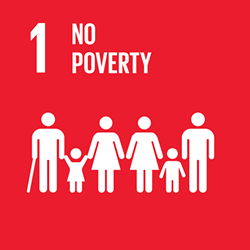
















 Please click on the SDG14 colored icon to see to which specific SDG14 targets this initiative is contributing.1. End poverty in all its forms everywhere
Please click on the SDG14 colored icon to see to which specific SDG14 targets this initiative is contributing.1. End poverty in all its forms everywhere
1. End poverty in all its forms everywhere2 End hunger, achieve food security and improved nutrition and promote sustainable agriculture
3 Ensure healthy lives and promote well-being for all at all ages
4 Ensure inclusive and equitable quality education and promote lifelong learning opportunities for all
5 Achieve gender equality and empower all women and girls
6 Ensure availability and sustainable management of water and sanitation for all
7 Ensure access to affordable, reliable, sustainable and modern energy for all
8 Promote sustained, inclusive and sustainable economic growth, full and productive employment and decent work for all
9 Build resilient infrastructure, promote inclusive and sustainable industrialization and foster innovation
10 Reduce inequality within and among countries
11 Make cities and human settlements inclusive, safe, resilient and sustainable
12 Ensure sustainable consumption and production patterns
13 Take urgent action to combat climate change and its impacts
14 Conserve and sustainably use the oceans, seas and marine resources for sustainable development
14.2 By 2020, sustainably manage and protect marine and coastal ecosystems to avoid significant adverse impacts, including by strengthening their resilience, and take action for their restoration in order to achieve healthy and productive oceans15 Protect, restore and promote sustainable use of terrestrial ecosystems, sustainably manage forests, combat desertification, and halt and reverse land degradation and halt biodiversity loss
16 Promote peaceful and inclusive societies for sustainable development, provide access to justice for all and build effective, accountable and inclusive institutions at all levels
Other Regional and Global Commitments
Regional Emerging Issues
CROP The Caribbean Regional Oceanscape project
Brief Description:To preserve and strengthen resilience of coastal and marine resources, and implement regional policies to stimulate blue growth.Lead Organization: World Bank, OECSDonor: GEFProject ID: 9451Geographic Scope: Multicountry (regional)Project Status: OngoingLast Update:
Start Date: 9/1/2017
End Date: 12/31/2021Website:http://www.oecs.orgProject Profile Manager: CLME+ ICM Secretariat
Contact Email: info@clmeplus.org
Contact Phone: +1 758-455-6327Partners: Dominica, Grenada, St. Kitts and Nevis, St. Lucia, St. Vincent and the GrenadinesGrant (USD): $6,300,000.00Total co-financing (USD):(Co) financing not originating from GEF:Participating Country(s):Dominica
Grenada St. Kitts and Nevis St. Lucia St. Vincent and the Grenadines
Contributions to the 10-year CLME+ Strategic Action Programme (2015-2025)









 Please click on the colored SAP Strategy icon to obtain more information on the specific SAP Actions this initiative is contributing to1. Enhance the regional governance arrangements for the protection of the marine environment
Please click on the colored SAP Strategy icon to obtain more information on the specific SAP Actions this initiative is contributing to1. Enhance the regional governance arrangements for the protection of the marine environment
2. Enhance the regional governance arrangements for sustainable fisheries
3. Establish and operationalise a regional policy coordination mechanismfor ocean governance, with initial focus on shared Living Marine Resources
4. Enhance the governance arrangements for ecosystem-based management for reefs and associated ecosystems
4A. Enhance the governance arrangementsfor implementing an ecosystem approach for spiny lobster fisheries
4B. Enhance the governance arrangementsfor implementing an ecosystem approach for queen conch fisheries
5. Enhance the governance arrangements for implementing an ecosystem approach for pelagic fisheries
5A. Enhance the governance arrangements for implementing the ecosystem approach for flyingfish fisheries
5B. Enhance the governance arrangementsfor implementing an ecosystem approach for large pelagics fisheries
6. Implement EBM/EAF of the Guianas-Brazil continental shelf with special reference to the shrimp and groundfish fishery
Contributions to the 2030 UN Sustainable Development Agenda (SDG’s)

















 Please click on the SDG14 colored icon to see to which specific SDG14 targets this initiative is contributing.1. End poverty in all its forms everywhere
Please click on the SDG14 colored icon to see to which specific SDG14 targets this initiative is contributing.1. End poverty in all its forms everywhere
1. End poverty in all its forms everywhere2 End hunger, achieve food security and improved nutrition and promote sustainable agriculture
3 Ensure healthy lives and promote well-being for all at all ages
4 Ensure inclusive and equitable quality education and promote lifelong learning opportunities for all
5 Achieve gender equality and empower all women and girls
6 Ensure availability and sustainable management of water and sanitation for all
7 Ensure access to affordable, reliable, sustainable and modern energy for all
8 Promote sustained, inclusive and sustainable economic growth, full and productive employment and decent work for all
9 Build resilient infrastructure, promote inclusive and sustainable industrialization and foster innovation
10 Reduce inequality within and among countries
11 Make cities and human settlements inclusive, safe, resilient and sustainable
12 Ensure sustainable consumption and production patterns
13 Take urgent action to combat climate change and its impacts
14 Conserve and sustainably use the oceans, seas and marine resources for sustainable development
14.2 By 2020, sustainably manage and protect marine and coastal ecosystems to avoid significant adverse impacts, including by strengthening their resilience, and take action for their restoration in order to achieve healthy and productive oceans15 Protect, restore and promote sustainable use of terrestrial ecosystems, sustainably manage forests, combat desertification, and halt and reverse land degradation and halt biodiversity loss
16 Promote peaceful and inclusive societies for sustainable development, provide access to justice for all and build effective, accountable and inclusive institutions at all levels
Other Regional and Global Commitments
Regional Emerging Issues
CBP Caribbean Billfish Project
Brief Description:To develop business plans for one or more long-term pilot projects aimed at the sustainable management and conservation of billfish species within the Western Central Atlantic Ocean region. The project will also contribute to regional capacity building, information systems and management and conservation planning for billfishLead Organization: FAODonor: WB, GEFProject ID:Geographic Scope: Multicountry (regional)Project Status: CompletedLast Update:
Start Date: 2015-01-01
End Date: 2018-01-12Project Profile Manager: CLME+ ICM Secretariat
Contact Email: info@clmeplus.org
Contact Phone: 00 1 (246) 823 0678Partners: CBMC, CRFM, OSPESCA,CFMC, Conservation International, International, Game Fish Association, Grenada Fisheries Division, CODOPESCAGrant (USD): $1,950,000.00Total co-financing (USD):(Co) financing not originating from GEF:Participating Country(s):Dominican Republic
Grenada
Contributions to the 10-year CLME+ Strategic Action Programme (2015-2025)









 Please click on the colored SAP Strategy icon to obtain more information on the specific SAP Actions this initiative is contributing to1. Enhance the regional governance arrangements for the protection of the marine environment
Please click on the colored SAP Strategy icon to obtain more information on the specific SAP Actions this initiative is contributing to1. Enhance the regional governance arrangements for the protection of the marine environment
2. Enhance the regional governance arrangements for sustainable fisheries
3. Establish and operationalise a regional policy coordination mechanismfor ocean governance, with initial focus on shared Living Marine Resources
4. Enhance the governance arrangements for ecosystem-based management for reefs and associated ecosystems
4A. Enhance the governance arrangementsfor implementing an ecosystem approach for spiny lobster fisheries
4B. Enhance the governance arrangementsfor implementing an ecosystem approach for queen conch fisheries
5. Enhance the governance arrangements for implementing an ecosystem approach for pelagic fisheries
5.4. Establish and/or enhance the capacity of regional, sub-regional and national arrangements for implementing management measures5A. Enhance the governance arrangements for implementing the ecosystem approach for flyingfish fisheries
5B. Enhance the governance arrangementsfor implementing an ecosystem approach for large pelagics fisheries
6. Implement EBM/EAF of the Guianas-Brazil continental shelf with special reference to the shrimp and groundfish fishery
Contributions to the 2030 UN Sustainable Development Agenda (SDG’s)












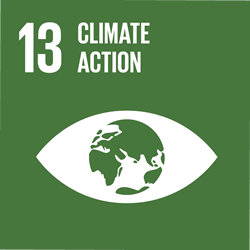




 Please click on the SDG14 colored icon to see to which specific SDG14 targets this initiative is contributing.1. End poverty in all its forms everywhere
Please click on the SDG14 colored icon to see to which specific SDG14 targets this initiative is contributing.1. End poverty in all its forms everywhere
2 End hunger, achieve food security and improved nutrition and promote sustainable agriculture
3 Ensure healthy lives and promote well-being for all at all ages
4 Ensure inclusive and equitable quality education and promote lifelong learning opportunities for all
5 Achieve gender equality and empower all women and girls
6 Ensure availability and sustainable management of water and sanitation for all
7 Ensure access to affordable, reliable, sustainable and modern energy for all
8 Promote sustained, inclusive and sustainable economic growth, full and productive employment and decent work for all
9 Build resilient infrastructure, promote inclusive and sustainable industrialization and foster innovation
10 Reduce inequality within and among countries
11 Make cities and human settlements inclusive, safe, resilient and sustainable
12 Ensure sustainable consumption and production patterns
13 Take urgent action to combat climate change and its impacts
13 Take urgent action to combat climate change and its impacts14 Conserve and sustainably use the oceans, seas and marine resources for sustainable development
14.2 By 2020, sustainably manage and protect marine and coastal ecosystems to avoid significant adverse impacts, including by strengthening their resilience, and take action for their restoration in order to achieve healthy and productive oceans15 Protect, restore and promote sustainable use of terrestrial ecosystems, sustainably manage forests, combat desertification, and halt and reverse land degradation and halt biodiversity loss
16 Promote peaceful and inclusive societies for sustainable development, provide access to justice for all and build effective, accountable and inclusive institutions at all levels
Other Regional and Global Commitments
Regional Emerging Issues
CLME+ Catalysing Implementation of the Strategic Action Programme for the Sustainable Management of shared Living Marine Resources in the Caribbean and North Brazil Shelf Large Marine Ecosystems
 Catalizando la Implementación del Programa de Acciones Estratégicas para el Manejo Sostenible de los Recursos Marinos Vivos Compartidos de los Grandes Ecosistemas Marinos del Caribe y de la Plataforma Continental del Norte de Brasil (región CLME+)Brief Description:The UNDP/GEF CLME+ Project is a five-year project that specifically aims at facilitating the implementation of the ten-year politically endorsed Strategic Action Programme for the Sustainable Management of the Shared Living Marine Resources of the Caribbean and North Brazil Shelf Large Marine Ecosystems (CLME+ SAP). The project seeks to achieve this by facilitating ecosystem based management/an ecosystem approach to fisheries (EBM/EAF) within the CLME+ region, in such a way that a sustainable and climate resilient provision of goods and services from the region’s living marine resources can be secured. Given its regional and comprehensive nature, the UNDP/GEF CLME+ Project is uniquely positioned to address the root causes of environmental degradation, in particular the gaps and weaknesses in transboundary and cross-sectoral governance arrangements. In this same context, the project will assist stakeholders in achieving improved coordination, collaboration and integration among the wide array of ongoing and newly planned projects and initiatives that are of relevance to the wider objectives of the CLME+ SAP.El proyecto CLME+ del PNUD/FMAM es una iniciativa que busca facilitar la implementación del Programa de Acciones Estratégicas para el Manejo Sostenible de los Recursos Marinos Vivos Compartidos de los Grandes Ecosistemas Marinos del Mar Caribe y de la Plataforma Del Norte De Brasil (PAE del CLME+), el cual ha sido trazado a 10 años y endosado por múltiples países de la región. El proyecto busca lograr dicha implementación facilitando la gestión basada en el ecosistema y un enfoque ecosistémico para la pesca (MEE / EEP) dentro de la región CLME +, de tal manera que pueda asegurarse el suministro de bienes y servicios que involucran recursos marinos vivos de la región de manera sostenible y resiliente al cambio climático. Dada su naturaleza regional e integral, el Proyecto CLME+ del PNUD/FMAM está enfocado en atacar las causas principales de la degradación ambiental, en particular las brechas y debilidades en los acuerdos de gobernanza transfronterizos e intersectoriales. En este mismo contexto, el proyecto ayuda a las partes interesadas a lograr una mejor coordinación, colaboración e integración entre la amplia gama de proyectos e iniciativas en curso y recientemente planificados que son relevantes para los objetivos más amplios del PAE CLME+.Lead Organization: UNDPDonor: GEFProject ID: 5542Geographic Scope: Multicountry (regional)Project Status: OngoingLast Update: 04/03/2020
Catalizando la Implementación del Programa de Acciones Estratégicas para el Manejo Sostenible de los Recursos Marinos Vivos Compartidos de los Grandes Ecosistemas Marinos del Caribe y de la Plataforma Continental del Norte de Brasil (región CLME+)Brief Description:The UNDP/GEF CLME+ Project is a five-year project that specifically aims at facilitating the implementation of the ten-year politically endorsed Strategic Action Programme for the Sustainable Management of the Shared Living Marine Resources of the Caribbean and North Brazil Shelf Large Marine Ecosystems (CLME+ SAP). The project seeks to achieve this by facilitating ecosystem based management/an ecosystem approach to fisheries (EBM/EAF) within the CLME+ region, in such a way that a sustainable and climate resilient provision of goods and services from the region’s living marine resources can be secured. Given its regional and comprehensive nature, the UNDP/GEF CLME+ Project is uniquely positioned to address the root causes of environmental degradation, in particular the gaps and weaknesses in transboundary and cross-sectoral governance arrangements. In this same context, the project will assist stakeholders in achieving improved coordination, collaboration and integration among the wide array of ongoing and newly planned projects and initiatives that are of relevance to the wider objectives of the CLME+ SAP.El proyecto CLME+ del PNUD/FMAM es una iniciativa que busca facilitar la implementación del Programa de Acciones Estratégicas para el Manejo Sostenible de los Recursos Marinos Vivos Compartidos de los Grandes Ecosistemas Marinos del Mar Caribe y de la Plataforma Del Norte De Brasil (PAE del CLME+), el cual ha sido trazado a 10 años y endosado por múltiples países de la región. El proyecto busca lograr dicha implementación facilitando la gestión basada en el ecosistema y un enfoque ecosistémico para la pesca (MEE / EEP) dentro de la región CLME +, de tal manera que pueda asegurarse el suministro de bienes y servicios que involucran recursos marinos vivos de la región de manera sostenible y resiliente al cambio climático. Dada su naturaleza regional e integral, el Proyecto CLME+ del PNUD/FMAM está enfocado en atacar las causas principales de la degradación ambiental, en particular las brechas y debilidades en los acuerdos de gobernanza transfronterizos e intersectoriales. En este mismo contexto, el proyecto ayuda a las partes interesadas a lograr una mejor coordinación, colaboración e integración entre la amplia gama de proyectos e iniciativas en curso y recientemente planificados que son relevantes para los objetivos más amplios del PAE CLME+.Lead Organization: UNDPDonor: GEFProject ID: 5542Geographic Scope: Multicountry (regional)Project Status: OngoingLast Update: 04/03/2020
Start Date: 2015-05-01
End Date: 2021-04-30
Official Project Document: CLME-Project-Document.pdfWebsite:http://www.clmeproject.orgProject Profile Manager: Patrick Debels
Contact Email: patrickd@unops.org
Contact Phone: +57 5 6648292Partners: UNOPS, UNEP CEP, FAO WECAFC, IOCARIBE of the IOC of UNESCO, OSPESCA, CRFM, GCFI, CERMES, CANARI, OECSGrant (USD): $12,500,000.00Total co-financing (USD): $134,000,000.00(Co) financing not originating from GEF: $134,000,000.00Participating Country(s):Belize
Brazil
Colombia
Costa Rica
Guatemala
Guyana
Honduras
Panama
Mexico
Suriname
United States of America
Barbados
Dominica
Dominican Republic
Grenada
Haiti
Jamaica
Saint Lucia
Trinidad and Tobago
Antigua and Barbuda
Saint Kitts and Nevis
Saint Vincent and the Grenadines
Contributions to the 10-year CLME+ Strategic Action Programme (2015-2025)

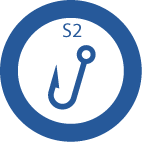


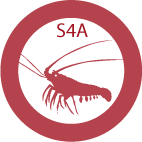


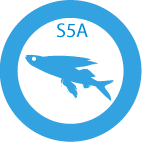

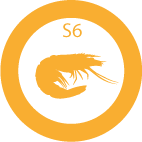 Please click on the colored SAP Strategy icon to obtain more information on the specific SAP Actions this initiative is contributing to1. Enhance the regional governance arrangements for the protection of the marine environment
Please click on the colored SAP Strategy icon to obtain more information on the specific SAP Actions this initiative is contributing to1. Enhance the regional governance arrangements for the protection of the marine environment
1.1. Establish and operationalise a formal agreement for coordinated action with Brazil1.2. Establish and strengthen regional institutional coordination and cooperation arrangements1.3. Evaluate expansion and strengthening of the mandate of organizations to effectively address issues relating to habitat degradation and pollution in the marine environment1.5. Establish and/or enhance the capacity of the regional,sub-regional and national governance arrangements for the involvement of civil society in the implementation of the EBM/EAF approach (IGOs,NGOs,CBOs,private sector...)1.6. Enhance the capacity within and among arrangements to undertake and mainstream lessons learned and findings from monitoring,science and research in regional, sub-regional and national decision-making1.7. Establish and/or enhance the capacity within and among arrangements to undertake and mainstream valuation of ecosystem goods and services in regional, sub-regional and national decision-making and policy development1.8. Establish and/or increase the capacity of (sub-)regional organizations and countries for integrating the management of terrestrial drainage basins with the management of the marine recipient basins and coastal development(CLME and NBSLME)1.9. Strengthen the capacity of the regional and sub-regional arrangements to support countries in becoming parties to relevant international and regional agreements and complying with their global and regional commitments towards the conservation of the marine environment (including the support to update and harmonize national legislation and regulations)1.10. Establish and/or enhance the data and information quality and collection and management capacity of the regional, sub-regional and nationalgovernance arrangements for the protection of the marine environment, including through the establishment of public-private partnerships1.11. Establish and/or enhance the capacity of the regional, sub –regional and national governance arrangements for the monitoring, assessment and reporting on the state of the marine environment2. Enhance the regional governance arrangements for sustainable fisheries
2.1. Establish an interim arrangement for sustainable fisheries coordinated by FAO-WECAFC and including CRFM; OSPESCA; and OECS2.2. Review, and reform WECAFC as needed to clarify and strengthen its mandate and relationships with Regional Fisheries Bodies such as CRFM, OSPESCA and ICCAT2.3. Evaluate the needs and the options, agree on the mandate & operationalise a Regional Fisheries Management Organisation (RFMO) or alternative arrangement for the management of shared living marine resources (as applicable*)2.4. Establish and/or enhance the capacity of the regional, sub-regional and national governance arrangements for the broader involvement of society in the implementation of the EBM/EAF approach (IGOs, NGOs, CBOs, private sector...)2.5. Establish and/or enhance the capacity of the regional, sub-regional and national fisheries institutions to develop and implement harmonized management and conservation measures, with special focus on Illegal, Unreported and Unregulated Fishing (IUU) and Monitoring, Control & Surveillance (MCS)2.6. Coordinate the development and implementation of fisheries-specific initiatives for IUU and MCS2.7. Coordinate the development and implementation of regional, sub-regional and national initiatives for sustainable small scale fisheries (including capacity building and pilot initiatives)2.8. Coordinate the development and implementation of regional, sub-regional and national initiatives to improve welfare and livelihoods through the provision of Decent Work(including through the development of alternative livelihoods, capacity building and pilot initiatives)2.10. Establish and/or enhance the capacity to manage knowledge and to mainstream findings from monitoring, science and research in regional, sub-regional and national decision-making and policy development for sustainable fisheries2.11. Establish and/or enhance the capacity to undertake and mainstream valuation of ecosystem goods and services in regional, sub-regional and national decision-making and policy development for sustainable fisheries2.12. Strengthen the capacity of the regional and sub-regional arrangements to support countries in becoming parties to relevant international and regional agreements and complying with their global and regional commitments towards the sustainable use and conservation of the marine environment and associated living resources (including the support to update and harmonize national legislation and regulations)2.13. Establish and/or enhance the data and information quality and collection and management capacity of the regional, sub-regional and national fisheries governance arrangements, including through the establishment of public-private partnerships2.14. Establish and/or enhance the capacity of the regional, sub-regional and national fisheries governance arrangements for the monitoring, assessment & reporting on the state of fisheries3. Establish and operationalise a regional policy coordination mechanismfor ocean governance, with initial focus on shared Living Marine Resources
3.1. Decide upon and establish an interim coordination mechanism amongst the regional sub-arrangementsfor sustainable fisheries and for the protection of the marine environment3.2. Evaluate all options and propose a permanent policy coordination mechanism with a clear mandate which is financially sustainable, geographically inclusive and politically acceptable and which takes into account the principle of subsidiarity (this may include the identification of appropriate reforms)3.3. Adopt and operationalise the permanent regional policy coordination mechanism for shared Living Marine Resources (sLMR) governance3.4. Develop and adopt a regional policy for data and information harmonization and sharing3.5. Develop and coordinate integrated and sectoral research strategies in support of the implementation of broader ocean governance in the region, with a short and medium term focus on sLMR management3.6. Develop and coordinate integrated and sectoral sustainable financing strategies for the cost-effective implementation of broader ocean governance in the region, with a short and medium term focus on sLMR governance3.7. Facilitate the preparation of data and information products and the uptake of monitoring and research outputs by (sub)regional and national science-policy interfaces4. Enhance the governance arrangements for ecosystem-based management for reefs and associated ecosystems
4.1. Strengthen the formal cooperation between OSPESCA and CCAD for implementing the EBM/EAF approach4.2. Establish and/or enhance the cooperation between environmental, fisheries and other relevant agencies within CARICOM for implementing the EBM/EAF approach4.3. Establish, strengthen and harmonize, (sub-)regional and/or fisheries-specific initiatives to combat IUU fishing by combining compliance measures (Monitoring Control and Surveillance plus awareness building among consumers & producers) with the provision of alternative livelihoods4.4. Coordinate and enhance (sub-)regional and national efforts for the conservation of the biodiversity of reef and associated habitats, including through the strengthening of networks of marine protected areas (MPAs), and initiatives for sustainable reef fisheries* such as programmes dealing with alien invasive species4.5. Develop and implement initiatives for sustainable livelihoods by building capacity for diversification, fostering and facilitating viable alternative sources of Decent Work and/or improved incomes, and creating addedvalue (e.g. through marketing and sales)4.7. Strengthen the capacity of Regional Fisheries Bodies to engage and build capacity among member States to implement the EBM/EAF approach, through National Action Plans (NAPs), data/information management and analysis, and operationalisation of national intersectoral coordination and consultation mechanisms that include science-policy interfaces4.8. Operationalise and strengthen interlinked Decision Support Systems (DSSs) for the protection of reefs and associated ecosystems and for the sustainable management of associated living marine resources4A. Enhance the governance arrangementsfor implementing an ecosystem approach for spiny lobster fisheries
4A.1. Establish, strengthen, and coordinate arrangements between the FAO-WECAFC, OSPESCA, UNEP-SPAW, and CRFM for harmonizing the spiny lobster fishery governance and management throughout the CLME+region4A.2. Evaluate and expand, as applicable,the geographic scope of the governance arrangement operated by OSPESCA, taking into consideration both the perspectives of species range (ecosystem approach) and of common markets4A.3. Strengthen and achieve full implementation of policy cycles under the existing sub-regional governance arrangements for the management of the spiny lobster fisheries, including linkages with organizations working on the environmental protection of reefs and associated ecosystems4A.4. Operationalise and strengthen a DSS for the spiny lobster fisheries (including linkages to the DSS for the protection and sustainable management of reefs and associated living marine resources)4B. Enhance the governance arrangementsfor implementing an ecosystem approach for queen conch fisheries
5. Enhance the governance arrangements for implementing an ecosystem approach for pelagic fisheries
5.2. Establish, strengthen and harmonise(sub-)regionaland/or fisheries-specificinitiatives to combatIUU by combining compliance measures (Monitoring Control and Surveillance plus awareness building among consumers andproducers) with the provision of alternative livelihoods5A. Enhance the governance arrangements for implementing the ecosystem approach for flyingfish fisheries
5A.1. Strengthen the FAO-WECAFCand CRFM sub-regional arrangement for the assessment and management of the flyingfish fisheries including the establishment of a decision-making capacity for management5A.2. Establish and operationalise a formal agreement between the CRFM and France on the management of the flyingfish fisheries5A.3. Operationaliseand strengthen an integrated, sub-regional decision support system (DSS) for the flyingfish fisheries (in coordination with the large pelagics arrangements)5A.4. Strengthen the FAO-WECAFC and CRFM capacity to develop, adopt and implement management and conservation measures for the flyingfish fisheries(full policy cycle implementation)5A.5. Implement the CRFM/FAO-WECAFCSub-Regional Management Plan for flyingfish fisheries in the Eastern Caribbean5A.6. Develop and implement education and awareness building initiatives to improve understanding and enhanced stakeholder commitment and particpation in planning and decision-making in the flyingfish fisheries5B. Enhance the governance arrangementsfor implementing an ecosystem approach for large pelagics fisheries
6. Implement EBM/EAF of the Guianas-Brazil continental shelf with special reference to the shrimp and groundfish fishery
6.1. Strengthen theFAO-WECAFC-CRFM sub-regional arrangement for the management of the shrimp and groundfish fisheries, and establish a decision-making capacity for policy formulation and management6.2. Explore and establish a sub-regional arrangement to address both marine and land-based sources of pollution within the context of the expanded framework for the protection of the marine environment built under Strategy 16.3. Explore and establish a sub-regional arrangement to address the issue of coastal habitat degradation and destruction within the context of the expanded framework for the protection of the marine environment built under Strategy 16.6. Operationalise and further enhance an interlinked, sub-regional decision support systems (DSS) for sustainable fisheries and environmental protection in the Guianas-Brazil continental shelf6.7. Establish and/orthe capacity of sub-regional and national arrangements for implementing management and conservation measures6.8. Establish and/or the capacity of Regional Fisheries Bodies to cooperate withand build capacity among member States to implement the EBM/EAF approach, through National Action Plans (NAPs), data/information management & analysis capacity, and operationalisation of national intersectoral coordination and consultation mechanisms(incl. science-policy interfaces)6.9. Establish and/or strengthen and harmonize (sub-)regional initiatives to combat IUU by combining compliance measures (Monitoring Control and Surveillance plus awareness building among consumers and producers) with the provision of alternative livelihoods6.10. Develop and implement initiatives for sustainably enhancing livelihoods by identifying and building capacity for diversification, viable alternative sources of Decent Work and/or improved incomes, and creating added value for current catches6.11. Develop and implement sub-regional EAF management plans for shared fishery resources along the Guianas-Brazil Shelf
Contributions to the 2030 UN Sustainable Development Agenda (SDG’s)

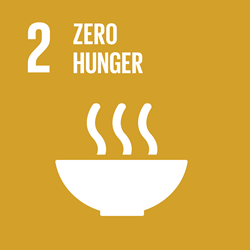
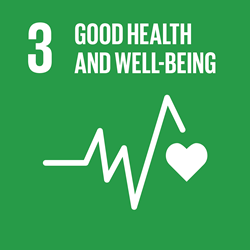

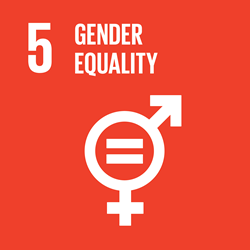
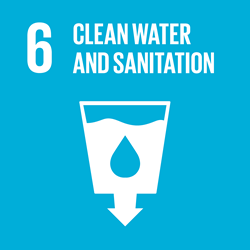

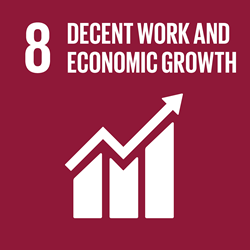

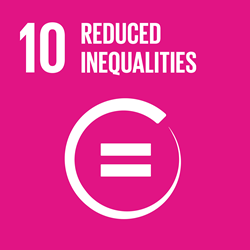

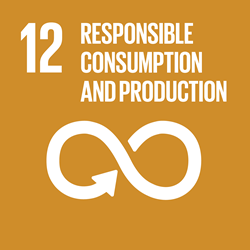



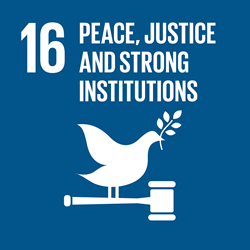
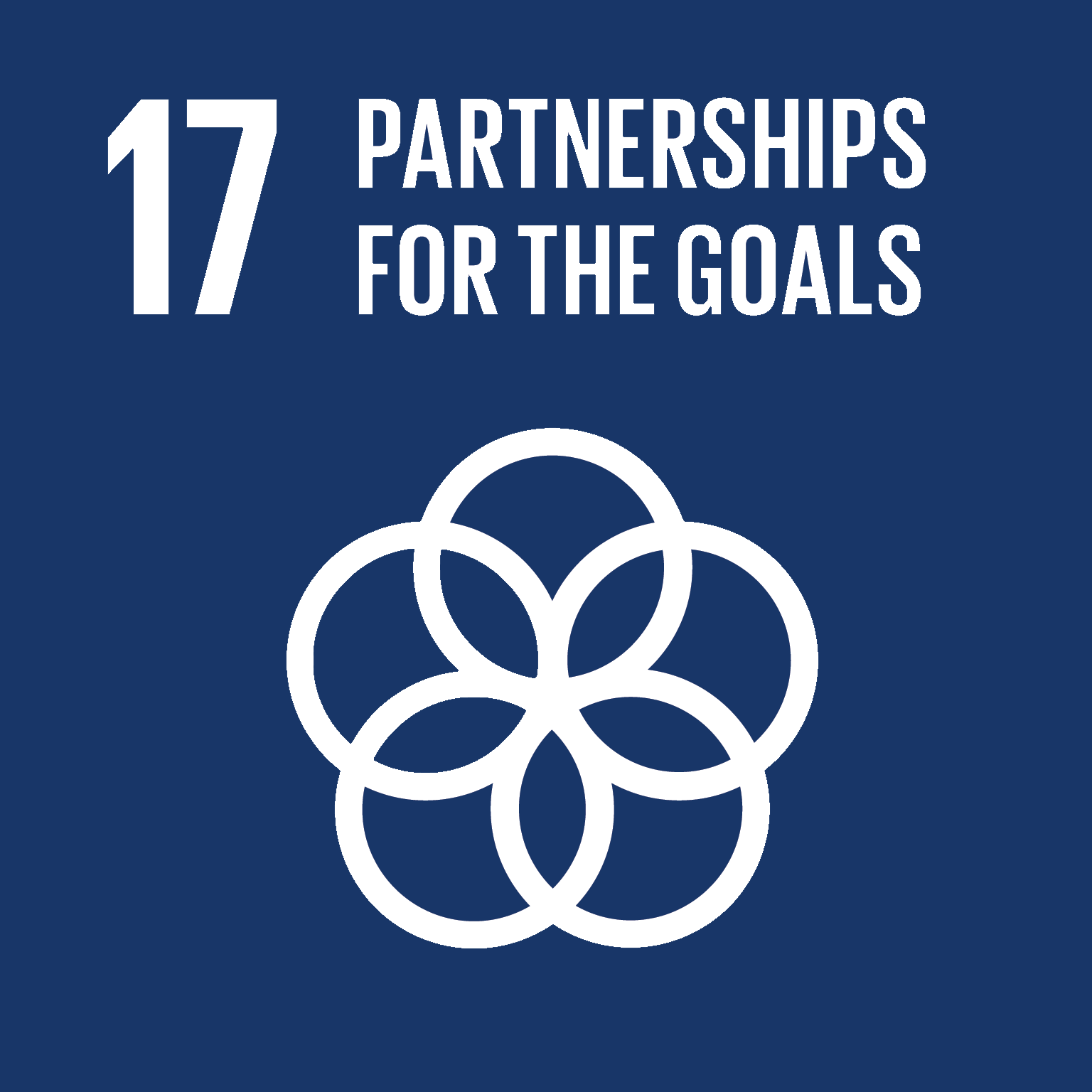
 Please click on the SDG14 colored icon to see to which specific SDG14 targets this initiative is contributing.1. End poverty in all its forms everywhere
Please click on the SDG14 colored icon to see to which specific SDG14 targets this initiative is contributing.1. End poverty in all its forms everywhere
1.1 By 2030, eradicate extreme poverty for all people everywhere, currently measured as people living on less than $1.25 a day2 End hunger, achieve food security and improved nutrition and promote sustainable agriculture
2.1 By 2030, end hunger and ensure access by all people, in particular the poor and people in vulnerable situations, including infants, to safe, nutritious and sufficient food all year round3 Ensure healthy lives and promote well-being for all at all ages
3.1 By 2030, reduce the global maternal mortality ratio to less than 70 per 100,000 live births4 Ensure inclusive and equitable quality education and promote lifelong learning opportunities for all
5 Achieve gender equality and empower all women and girls
5.1 End all forms of discrimination against all women and girls everywhere6 Ensure availability and sustainable management of water and sanitation for all
6.1 By 2030, achieve universal and equitable access to safe and affordable drinking water for all7 Ensure access to affordable, reliable, sustainable and modern energy for all
8 Promote sustained, inclusive and sustainable economic growth, full and productive employment and decent work for all
8.1 Sustain per capita economic growth in accordance with national circumstances and, in particular, at least 7 per cent gross domestic product growth per annum in the least developed countries9 Build resilient infrastructure, promote inclusive and sustainable industrialization and foster innovation
10 Reduce inequality within and among countries
10.1 By 2030, progressively achieve and sustain income growth of the bottom 40 per cent of the population at a rate higher than the national average11 Make cities and human settlements inclusive, safe, resilient and sustainable
12 Ensure sustainable consumption and production patterns
12.1 Implement the 10-year framework of programmes on sustainable consumption and production, all countries taking action, with developed countries taking the lead, taking into account the development and capabilities of developing countries13 Take urgent action to combat climate change and its impacts
13.1 Strengthen resilience and adaptive capacity to climate-related hazards and natural disasters in all countries14 Conserve and sustainably use the oceans, seas and marine resources for sustainable development
14.1 By 2025, prevent and significantly reduce marine pollution of all kinds, in particular from land-based activities, including marine debris and nutrient pollution14.2 By 2020, sustainably manage and protect marine and coastal ecosystems to avoid significant adverse impacts, including by strengthening their resilience, and take action for their restoration in order to achieve healthy and productive oceans14.4 By 2020, effectively regulate harvesting and end overfishing, illegal, unreported and unregulated fishing and destructive fishing practices and implement science-based management plans, in order to restore fish stocks in the shortest time feasible, at least to levels that can produce maximum sustainable yield as determined by their biological characteristics14.5 By 2020, conserve at least 10 per cent of coastal and marine areas, consistent with national and international law and based on the best available scientific information14.7 By 2030, increase the economic benefits to Small Island developing States and least developed countries from the sustainable use of marine resources, including through sustainable management of fisheries, aquaculture and tourism14.a Increase scientific knowledge, develop research capacity and transfer marine technology, taking into account the Intergovernmental Oceanographic Commission Criteria and Guidelines on the Transfer of Marine Technology, in order to improve ocean health and to enhance the contribution of marine biodiversity to the development of developing countries, in particular small island developing States and least developed countries14.b Provide access for small-scale artisanal fishers to marine resources and markets14.c Enhance the conservation and sustainable use of oceans and their resources by implementing international law as reflected in UNCLOS, which provides the legal framework for the conservation and sustainable use of oceans and their resources, as recalled in paragraph 158 of The Future We Want15 Protect, restore and promote sustainable use of terrestrial ecosystems, sustainably manage forests, combat desertification, and halt and reverse land degradation and halt biodiversity loss
16 Promote peaceful and inclusive societies for sustainable development, provide access to justice for all and build effective, accountable and inclusive institutions at all levels
16.1 Significantly reduce all forms of violence and related death rates everywhere
Other Regional and Global Commitments
Regional Emerging Issues
- Achievements on SAP
-With the support of the Project, the CLME+ Interim Fisheries Coordination Mechanism and CLME+ Interim Coordination Mechanism for Ocean Governance in the wider Caribbean were created. -A Regional Plan of Action against IUU fishing was delivered -the CLME+ Hub was created as a reference platform to be jointly owned by the ICM membership and partners of the CLME+ initiative -a CLME+ SAP actions tracking tool was developed and implemented (and will soon be made available through the Hub The OSPESCA Ministerial Council signed on 11 december 2019 the regional regulation on the Port State Measure Agreement, thereby kicking off ratification of the agreement by all 8 SICA member states.
- Achievements on SDG
- Achievements to other regional and global commitments
ABOUT
FROM VISION TO STRATEGIC ACTION
WORKING TOGETHER
PROJECTS AND INITIATIVES
ABOUT
MenuFROM VISION TO STRATEGIC ACTION
MenuWORKING TOGETHER
MenuPROJECTS AND INITIATIVES
MenuTOOLS
The CLME+ Hub is an initiative of the Secretariat of the CLME+ Interim Coordination Mechanism (ICM), in collaboration with the members of the CLME+ ICM and CLME+ Project Executive Group (PEG) and (prospective) Partner Organizations. Development of the Hub has benefited from the financial support of the UNDP/GEF Project: “Catalysing Implementation of the Strategic Action Programme (SAP) for the Sustainable Management of shared Living Marine Resources in the Caribbean and North Brazil Shelf Large Marine Ecosystems” (CLME+ Project, 2015-2020). The CLME+ Project is executed by the United Nations Office for Project Services (UNOPS) in close collaboration with a large number of global, regional and national-level partners. For more information on the CLME+ Project click here
Copyright © 2021 CLME + HUB
Menu
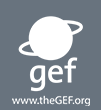
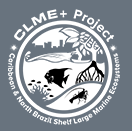

Cookies policy
We use cookies to enhance your site experience, to provide you with extra functionalities and for analytical purposes. You can consent to the use of such technology by accepting and closing this notice. If you want to find out more, please read our cookies policy here.
Welcome to SOMEE
MenuSOMEE content is still under development and is therefore not yet available online. However, you can already check for sample text and materials under the sections in blue text










